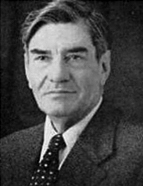

His career as a researcher can be divided into three distinct phases. The first phase saw a steady rise, culminating in the 1935 publication of Cartografia e cartógrafos portugueses dos séculos XV e XVI [Cartography and Portuguese Cartographers of the 15th and 16th Centuries,], released while he was already in exile. A second phase was one of consolidation and recognition, culminating in his magnum opus, Portvgaliae Monvmenta Cartographica, co-authored with Teixeira da Mota and published in the early 1960s. The third and final phase marked the pinnacle of his career, characterised by widespread international recognition, significant academic accolades, and prolific written production, which he maintained until his death. Despite his continuous work, his História da Cartografia Portuguesa [History of Portuguese Cartography] remained unfinished but was published in 1969/70.
With the creation of the Ancient Cartography Studies Group, part of the Overseas Research Board, Cortesão became the director of its Coimbra Section, affiliated with the Faculty of Sciences at the University of Coimbra, where it had been operating since 1960. This centre, an important hub for historiographical research related to overseas expansion, is known for its Memórias e Separatas Verdes [Green Memoirs and Separates] series, which published over 250 papers between 1961 and 2004 (including the first 100 monographs, released while Cortesão was still alive), authored by renowned scholars such as Luís de Albuquerque, Teixeira da Mota, and Cortesão himself.
On 12 May 1960, as part of the celebrations of the 5th centenary of Prince Henry's death, Cortesão delivered an Oração [s peech] given in the Capelos Hall at the University of Coimbra. In this address on the scientific environment of 15th century Portugal, during the embryonic stage of Atlantic expansion, he emphasised: "the Portuguese Discoveries took place within the new mystical, cultural and scientific environment created by Franciscanism, or of which it was an integral part, which reached Portugal from the very beginning". This patriotic and national sentiment was common among Portuguese intellectuals of the time, including Armando's older brother, Jaime Cortesão, who sought to emphasise and credit Portugal’s significant historical achievements.
